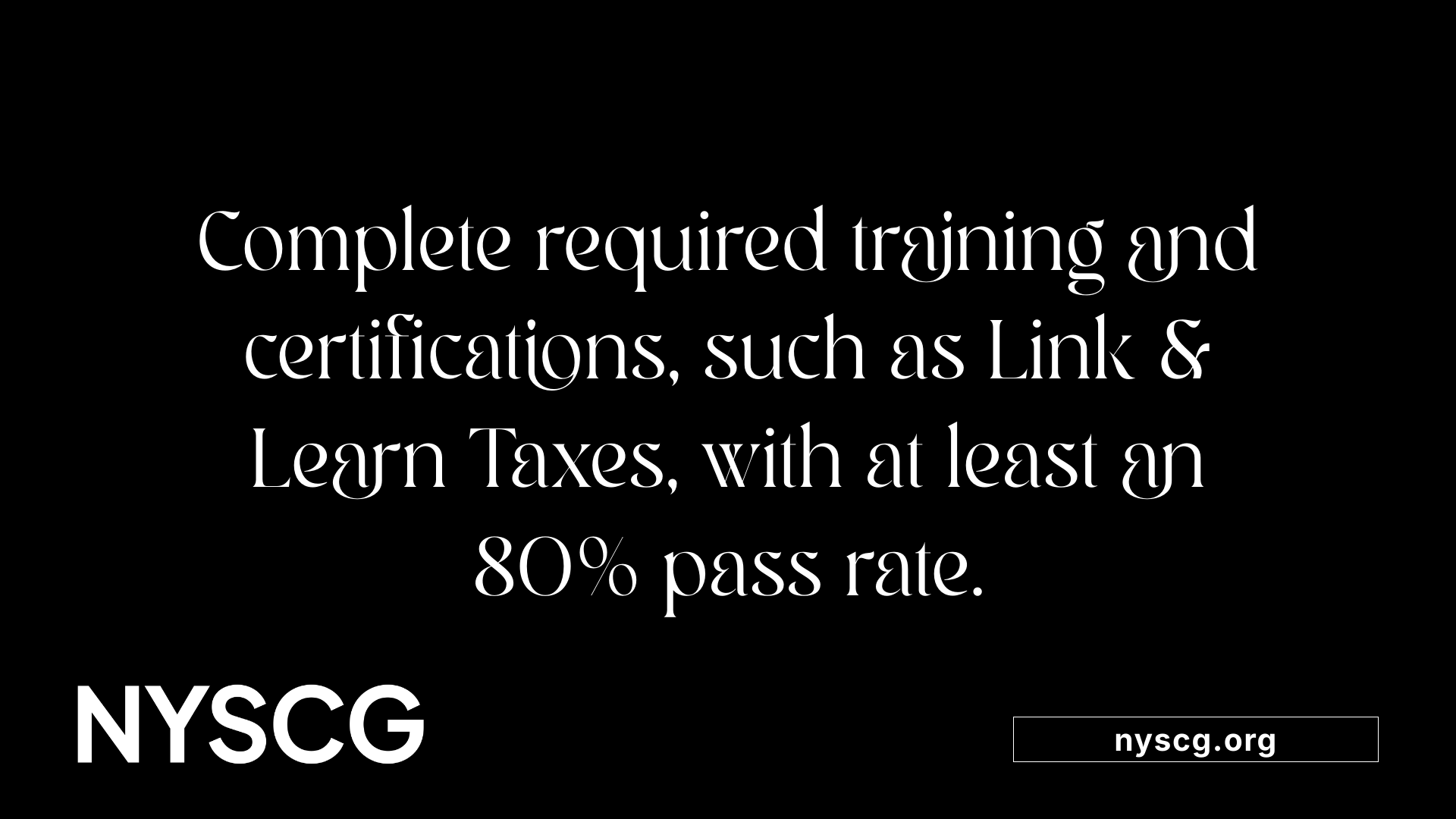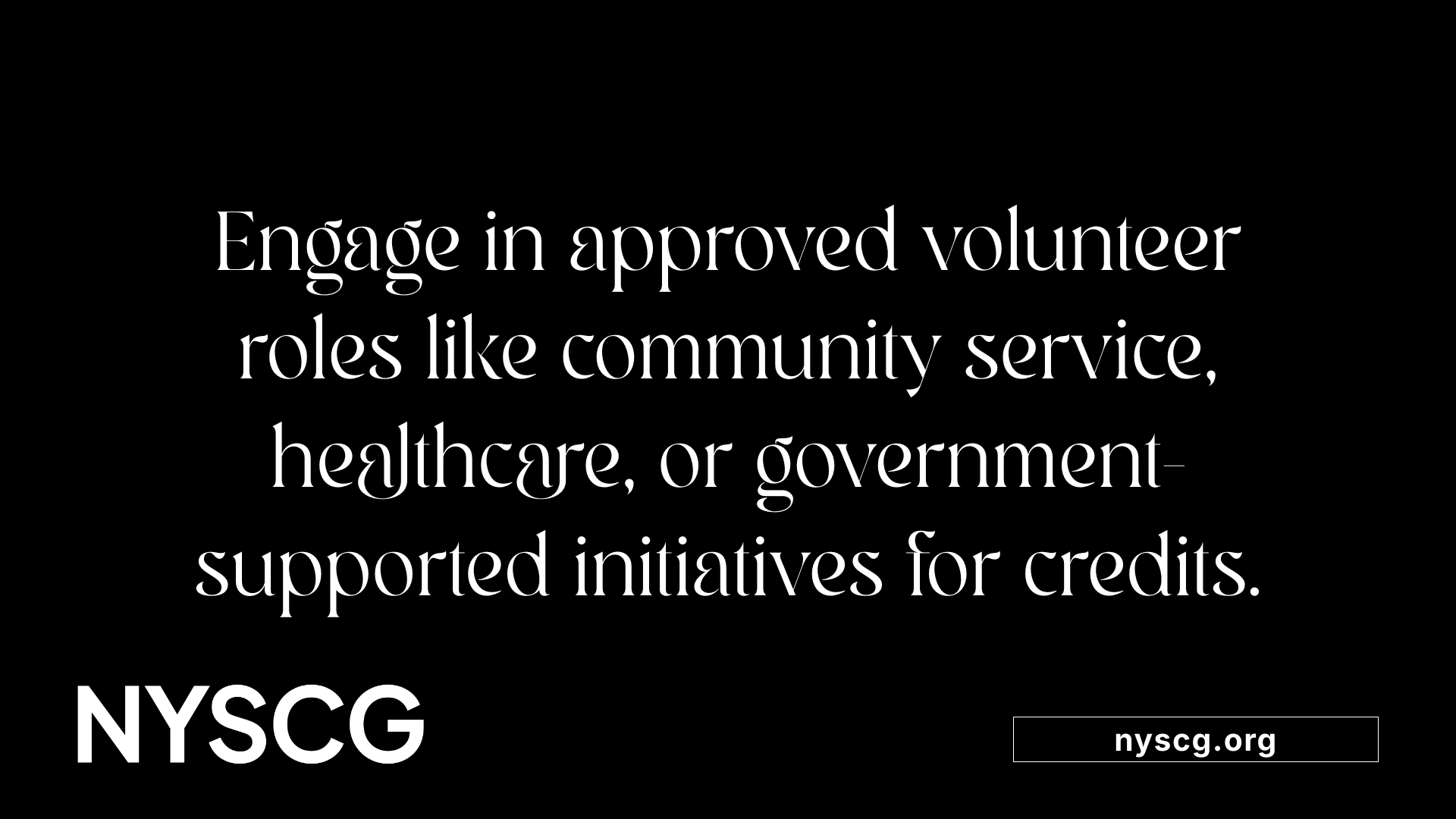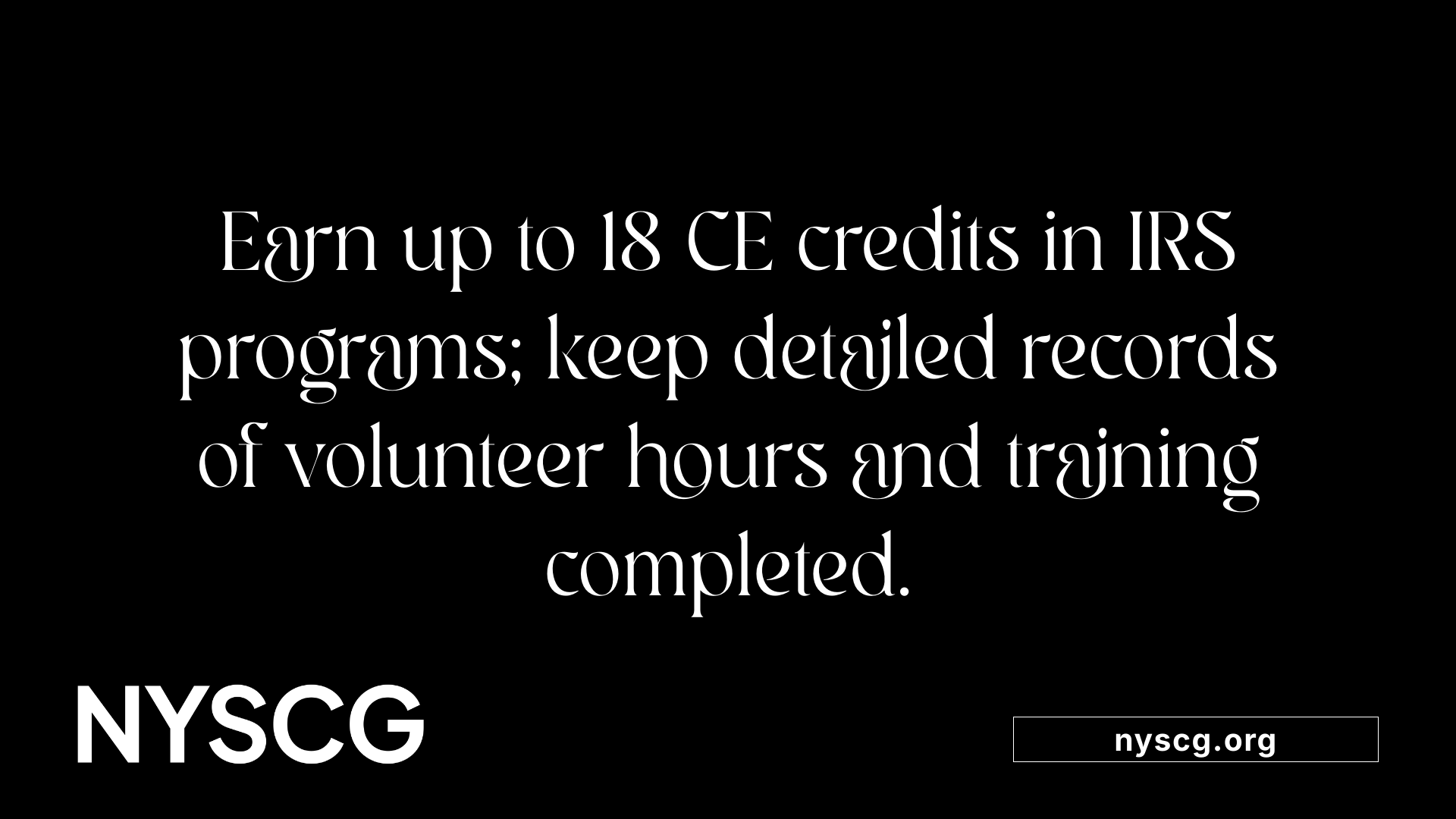What Volunteer Hours Count Toward Certification Credit?


Volunteer activities can be a valuable pathway to earning or maintaining professional certification credits across various fields. This article explores which volunteer hours qualify, the types of recognized activities, criteria for qualification, the verification process, and how these hours impact certification status. Whether you're a tax preparer, educator, healthcare professional, or high school student, understanding these guidelines can help you leverage volunteer service to meet your certification requirements effectively.

To earn certification credits through volunteer activities, volunteers must meet specific involvement and activity requirements. First, individuals need to participate in relevant volunteer work for at least 10 hours in roles such as tax return preparers, quality reviewers, or tax law instructors, particularly within IRS VITA and TCE programs.
The volunteer work must be unpaid and not part of routine professional duties. For example, activities like community service, mentoring, or participating in advocacy work are considered eligible. Volunteers must also fulfill certain training and certification standards, including completing required courses through Link & Learn Taxes with an 80% pass rate. Valid Preparer Tax Identification Numbers (PTINs) are necessary for most volunteers, with exceptions for attorneys, CPAs, and CFPs.
Activities aligned with the certification's standards or purpose are crucial. For instance, in IRS programs, adhering to Volunteer Standards of Conduct and completing certifications like Federal Tax Law or specialty courses boosts eligibility for credits. Certification activities often involve completing tests or standards verification, ensuring volunteers meet the professional and ethical guidelines.
Overall, relevant volunteer efforts that benefit the community or advance professional qualifications—when combined with the requisite training, hours, and standards—qualify volunteers for earning Continuing Education credits, facilitating their ongoing professional development.

Volunteer roles spanning various fields can contribute to professional growth through specific activities that qualify for continuing education credits. These include roles such as serving as an Exam Development Subject Matter Expert, participating in the Human Resources Certification Institute (HRCI) Board of Directors or Certification Council, and engaging with U.S. Technical Advisory Groups.
Activities must be approved by the certifying organization, which recognizes efforts that enhance professional knowledge, foster skill development, and support recertification processes. Typically, these activities do not require a minimum duration, allowing volunteers to earn credits based on the value and relevance of their participation.
Healthcare professionals and HR practitioners can also earn academic credits through volunteer efforts linked with universities or international organizations. Examples include volunteering in healthcare settings, engaging with community clinics, or contributing to youth or charitable activities. These volunteer opportunities must usually be unpaid and separate from routine job duties to count toward certification credits.
Furthermore, government-supported volunteer activities can be recognized for recertification or academic credits. Such roles might involve participation in public service initiatives, organizational committees, or community outreach programs.
It’s important to note that the focus is on unpaid, meaningful contributions that align with the volunteer’s professional development goals. Proper documentation and recognition, such as participation certificates, are typically required to verify hours and activities for crediting purposes.

Yes, there are specific guidelines regarding volunteer hours for certification maintenance and achievement, though these can differ based on the certifying body and the particular certification. In the context of IRS volunteer programs, volunteers involved in the VITA and TCE programs can earn up to 18 CE credits, which include hours from certifying in federal tax law, instructing courses, or volunteering as a reviewer or preparer.
For volunteering activities contributing toward CE credits, a minimum of 10 hours of volunteer service in roles like quality reviewer, tax return preparer, or tax law instructor is typically required. These hours can be combined with certification activities, such as completing necessary trainings and certifications through Link & Learn Taxes.
In terms of professional certification, particularly for educators, initial certification requests a total of 30 hours of professional development over four years, with different hour requirements for various certification classifications. Reactivation of certification involves 24 hours plus ongoing annual hours, and career certifications from years 5 to 99 require 15 hours annually.
For high school students earning elective credits for community service, a different set of rules applies, requiring at least 90 hours over two semesters, with verification from supervising organizations.
While in some fields like healthcare or education, there are structured volunteer-related hours for maintaining or advancing certifications, in tax volunteer programs, the emphasis is on completing specific training modules and accumulating qualifying volunteer hours, rather than a fixed minimum number of hours.
It is important to keep documentation of volunteer hours and completed training as these are often required for certification renewal or validation purposes. Many programs offer certificates of completion or verified credit hours through online platforms like Link & Learn Taxes, ensuring volunteers can demonstrate their engagement.
In conclusion, although there are recommended volunteer hours for certification purposes, exact requirements tend to vary across certifications and professional organizations. Documenting hours and fulfilling specified training components are essential steps in maintaining and achieving certification.

To successfully verify volunteer hours for certification purposes, volunteers should start by obtaining official documentation from the organization where they volunteered. This could include signed logs, certificates of service, or other formal records that detail the date, hours, and nature of the service performed.
Many organizations utilize digital platforms such as Civic Champs, VolunteerMatch, or VolunteerMark. These tools enable volunteers to log their hours electronically, generate certificates of participation, and export records in formats like CSV or PDF. Such digital logging streamlines the verification process, ensuring that records are accurate and easily accessible.
Official verification procedures also include the completion of verification forms provided by certifying bodies or schools, often requiring signatures from site supervisors or organization directors. These forms serve as formal proof that the volunteer hours were completed as reported.
Maintaining detailed records and official documentation is essential. While colleges and certifying agencies may not verify every hour, keeping comprehensive and organized records enhances the credibility of reported volunteer service.
By combining signed documents, digital logs, and official verification forms, volunteers can confidently present proof of their hours to schools, courts, or certification programs, enabling them to earn necessary credits and recognition for their community involvement.
Volunteers in IRS programs can earn CE credits, with certificates issued through Link & Learn Taxes. These certificates serve as official proof of the hours completed, which are recorded in volunteers' PTIN accounts. For professionals and volunteers, maintaining an accurate record of these certificates and transcripts is essential. They help demonstrate compliance with certification requirements and support career development. Notably, some activities like online courses from colleges such as Rio Salado College or Northern Arizona University are accepted for credit, and the certificates can be used for career certification or to upgrade from provisional to standard status. Ensuring these documents are up-to-date and stored securely allows volunteers and professionals to validate their ongoing education and participate confidently in future opportunities.
Engaging in qualified volunteer activities not only benefits your community but also plays a crucial role in earning and maintaining professional certifications. By understanding the specific criteria, recognized activities, and verification methods, you can strategically plan your volunteer efforts to meet your certification goals. Keep detailed records, utilize digital logging platforms, and stay informed about your certifying body's guidelines to ensure your volunteer hours are effectively recognized and credited. With careful planning and documentation, volunteer service can significantly contribute to your professional development and certification journey.
All you need is the will to make the world a better place.
New York State chaplain group inc. is a tax deductible organization with a federal tax Id number 92-383-4921